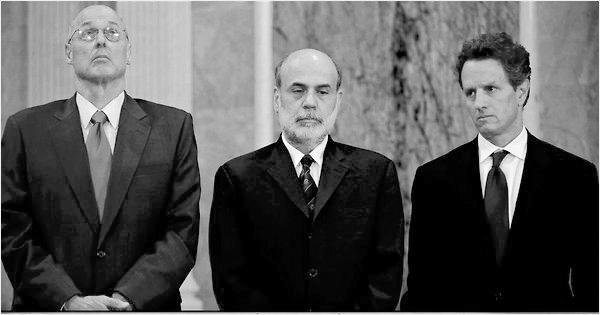Director Charles Ferguson has possibly made the scariest film of the year. It has no monsters, no twists, an incredibly linear narrative and a PG-13 rating. This withstanding, Ferguson’s new documentary, Inside Job, is truly terrifying. Its simple tagline tries to prepare its viewers: “The global economic crisis of 2008 cost tens of millions of people their savings, their jobs, and their homes. This is how it happened.”
The film itself fulfills its promises, offering an unabashed and often absurd account of how systematic incompetency has hurt such a vast number of human beings. That said, this is not a Michael Moore approach to muckraking. Ferguson is clear that his film isn’t about pitying victims; it is an exposé focusing solely on the perpetrators of this unprecedented villainy.
The film opens, oddly enough, with a sort of case study: Iceland’s recent experiment with the privatization and deregulation of their financial sector are highlighted. Ferguson has chosen to start his film with an inarguable case of cause and effect; one where a series of familiar poor choices has led to directly observable problems. This eases viewer into understanding specific policy problems, and establishes a base-line before Ferguson breaks out the real nitty-gritty; it’s this kind of prowess in translation where Inside Job really shines. Essentially, it’s no more than a two-hour seminar on applied macroeconomics, but because of its effective presentation, any layman can fully understand and absorb everything as it is presented.
Over the course of the film Ferguson interviews financial executives, academics, journalists, courtesans, and many key consultants to private banks and the Federal Reserve. Each interview starts with a friendly tone, Ferguson probing for objective explanations to complex problems. As the film progresses, there are several moments where Ferguson surprises his subjects by forcing them to account for their own moral lapses. Some scramble to end the interview, others gape at the camera grasping for words. It’s easy to get the sense that those most responsible feel that they (just like all of us) are ultimately “just along for the ride.” It is truly terrifying when the architects of our most powerful international financial institutions begin sounding like Adolf Eichmann.
Of course Inside Job is not without its lulls. Smartly though, Ferguson embraces them; there’s never a sense that the director has omitted anything important simply because it isn’t guaranteed to excite viewers. The most exciting points in the film are when Ferguson occasionally jumps from playing the interviewer to the interrogator. His questions hit hard and often leave established experts choosing between admitting to gross incompetence and unbridled corruption.
Inside Job isn’t necessarily a great film, but it has the power to be an important one. Chronicling decades we can only see in hindsight as tumultuous, it instills in its viewers a certain incredulousness necessary for mankind’s continued well-being. In a soft-spoken manner, Ferguson quietly presents revelation to his viewers without constant supervision the greedy will sell our future just like they’ve sold our present (for cocaine and prostitutes).


